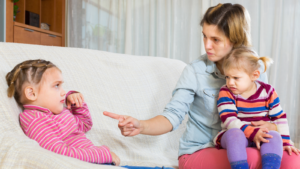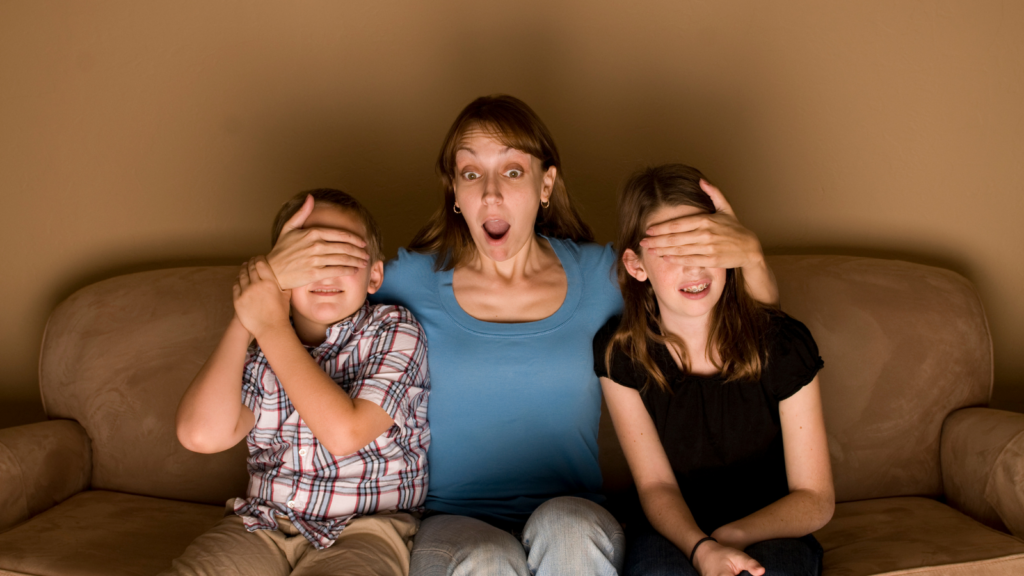Parenting is a journey filled with a myriad of emotions, and shame is one that’s often overlooked. It’s an emotion that can sneak up on parents and children alike, subtly influencing their interactions and relationships. This guide aims to shed light on the impact of shame in parenting, empowering parents to navigate this tricky emotional terrain.
Understanding shame’s role in parenting is crucial. It’s not just about recognizing when it occurs, but also about learning how to respond. This guide offers insightful strategies to help parents address shame, fostering healthier relationships with their children. So, let’s delve into the realm of shame in parenting, a topic that’s as complex as it is important.
Shame Parents Guide
The Role of Shame in Child Development
 In child development, shame can both fuel growth and impede progression. Constructive shame directs children towards introspection and amendment of wrong actions. However, persistent shame, unaddressed, hampers the self-esteem and confidence of a child, hampering their emotional and social development.
In child development, shame can both fuel growth and impede progression. Constructive shame directs children towards introspection and amendment of wrong actions. However, persistent shame, unaddressed, hampers the self-esteem and confidence of a child, hampering their emotional and social development.
Though closely linked, guilt and shame differ fundamentally. Guilt denotes children’s recognition of performing wrong, while shame reflects on their self-perception. In simpler terms, a guilty child thinks, “I did something bad”; the shamed child perceives, “I am bad”. Understanding this distinction becomes critical in addressing these emotions efficiently in children.
Shame Parents Guide: Why It Matters
The significance of understanding shame in parenting extends beyond theory. It’s directly linked to children’s emotional health and parent-child relationships.
The Impact of Shame on Children
Creative action, emotional intelligence, and social development in children can take a dive with persistent shaming. Example, a random scolding, devoid of appropriate context, can lead to a sense of unworthiness in a child. It’s essential for parents to comprehend these potential implications to prevent unintended emotional distress in their children.
Effects of Shaming on Parent-Child Relationship
Unchecked shaming may wield a conflicting influence on the parent-child bond. For instance, continuous negative words or contextless reproof can trigger strain in this vital relationship. It’s integral for both parents to remain aware of this possibility, to ensure the fostering of a trust-filled and open communication conduit with their children.
Identifying Signs of Shame in Your Child
Changes in Behavior
 Significant behavior shifts in your child could hint at feelings of shame. These may appear as a sudden lack of interest in favorite activities, or a spike in irritability. For instance, if your child, usually enthusiastic about painting, abruptly loses interest, it could indicate a shaming incident related to their art.
Significant behavior shifts in your child could hint at feelings of shame. These may appear as a sudden lack of interest in favorite activities, or a spike in irritability. For instance, if your child, usually enthusiastic about painting, abruptly loses interest, it could indicate a shaming incident related to their art.
Your child’s social interactions may also trigger warning bells. Isolation from friends, reluctance to participate in group activities, or avoiding eye contact, can signal feelings of shame. For example, if your child, once the life of the party, starts avoiding birthday celebrations, it may suggest a shame-induced behavioral change.
Strategies to Address Shame in Children
Emphasizing the Importance of Mistakes & Open Communication
Mistakes are a fundamental part of learning. Parents can support their kids by emphasizing this truth. For example, instead of displaying disappointment when children make errors, parents could use these instances as opportunities to teach them the value of making mistakes, thereby reducing shame.
Encouraging
Open communication plays a significant role in mitigating shame. When parents involve their children in candid conversations about their feelings, it helps kids accept their emotions. For instance, parents might initiate discussions about feelings related to shame, such as embarrassment or regret, and offer reassurances that these feelings are normal and acceptable.
Building a Shame-Free Parenting Approach
The Role of Positive Reinforcement
 Positive reinforcement plays a prominent role in a shame-free parenting approach. Using this strategy, parents offer rewards or express appreciation when children display desirable behavior. For instance, a compliment for trying a challenging task can boost a child’s self-esteem. This approach counters the effects of shame, stimulating confidence and promoting emotional growth.
Positive reinforcement plays a prominent role in a shame-free parenting approach. Using this strategy, parents offer rewards or express appreciation when children display desirable behavior. For instance, a compliment for trying a challenging task can boost a child’s self-esteem. This approach counters the effects of shame, stimulating confidence and promoting emotional growth.
Healthy emotional response modeling serves as another effective tool against shame. Parents need to exhibit how to process emotions in a positive manner. For example, reacting calmly during a stressful event illustrates effective emotional management. Children, observing these reactions, learn to handle their emotions positively, mitigating the impact of shame.
Fostering Healthier Emotional Environment
Navigating the waters of shame in parent-child relationships isn’t a simple task. Yet, it’s an essential one if parents are to foster healthier emotional environments for their children. Recognizing signs of shame and addressing them with strategies like emphasizing the value of mistakes, promoting open communication, and teaching effective coping mechanisms can make a world of difference.



